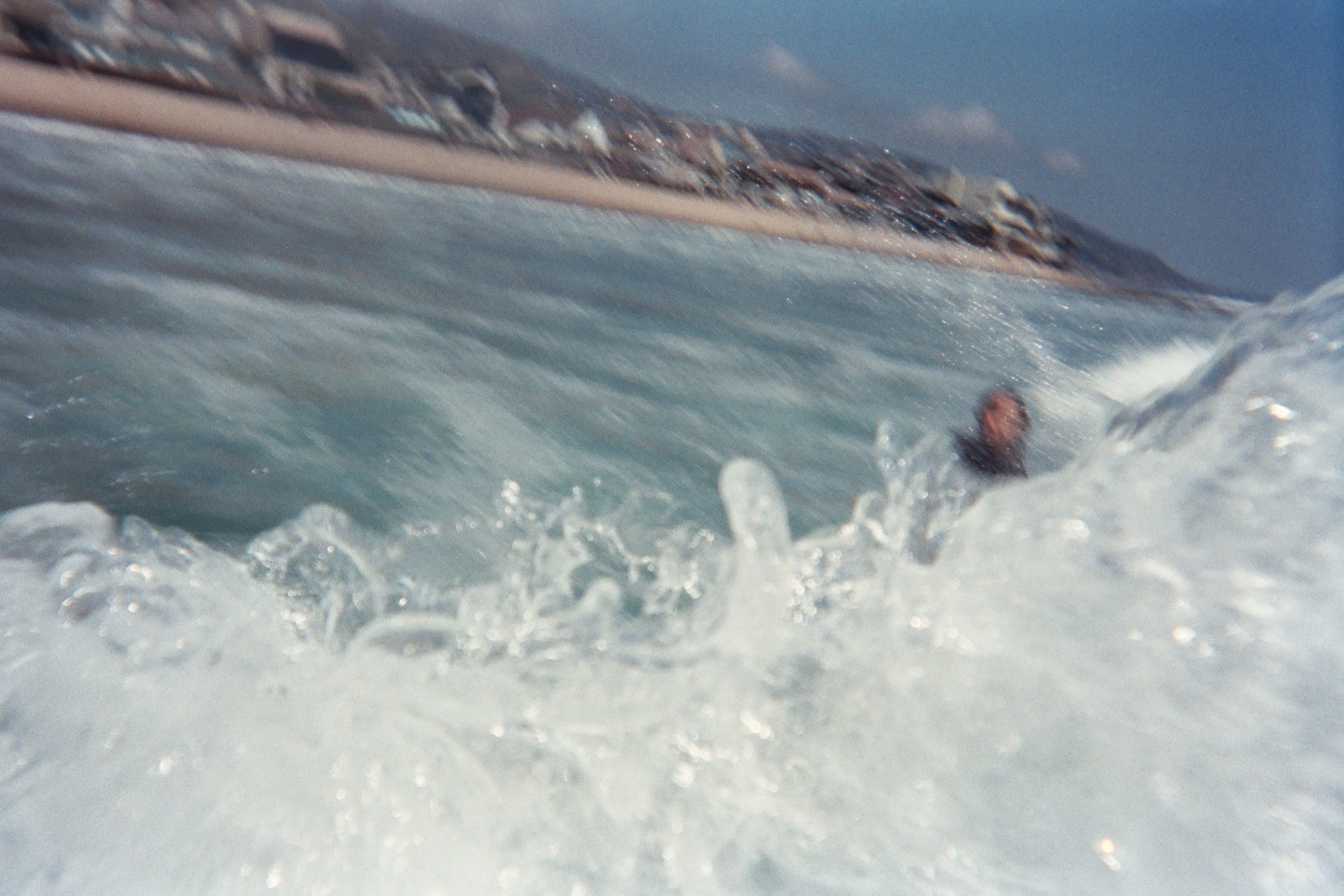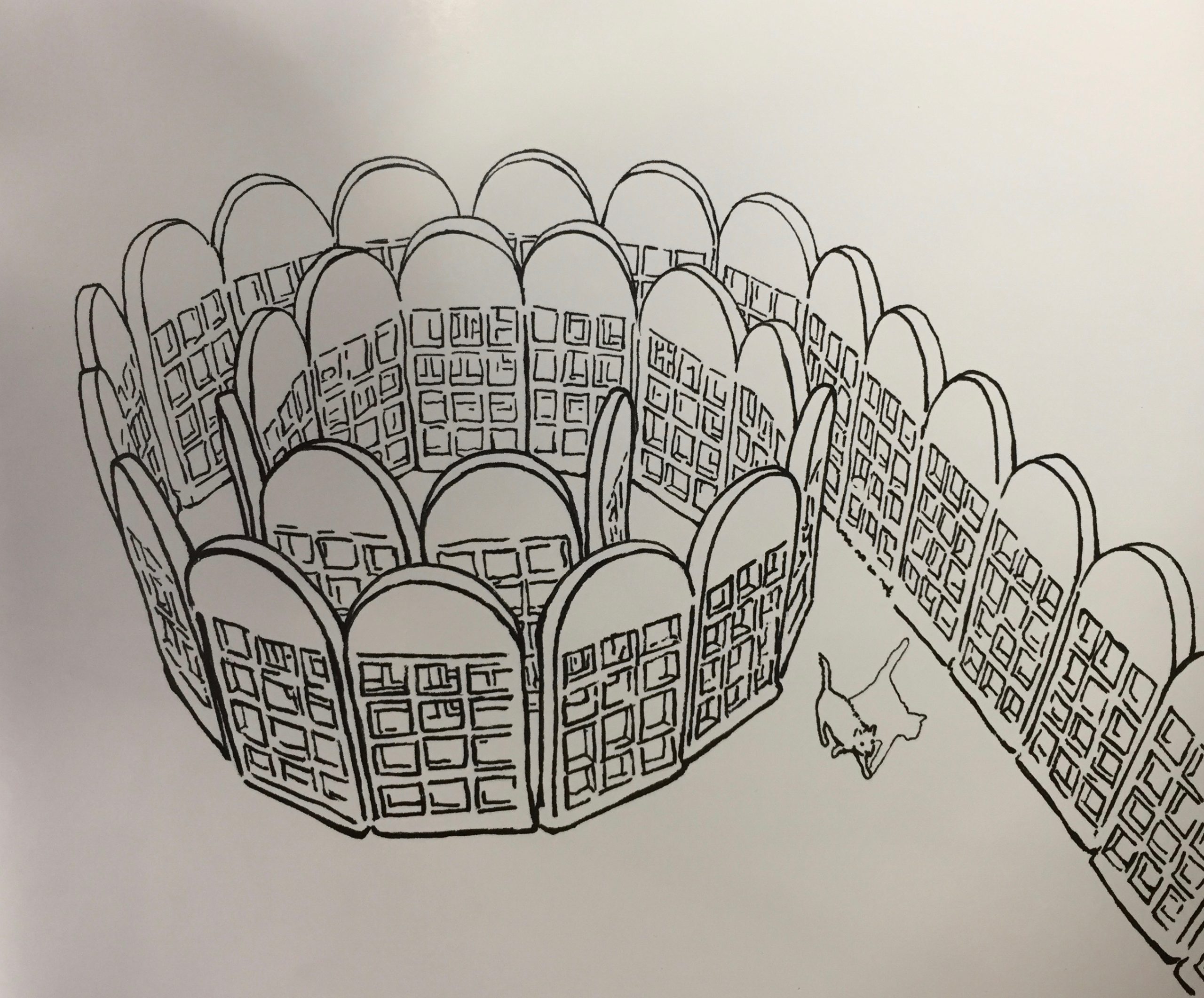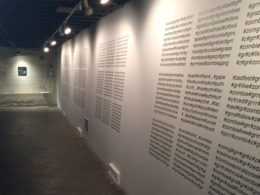
1
Ta-Nehisi Coates recently wrote an article for The Atlantic titled: I’m Not Black, I’m Kanye. In the essay, Coates foregrounds race while examining the problematic nature of celebrity; Coates uses himself and Michael Jackson as two other case studies of this ‘intersectionality.’ Coates sees Kanye West through a lens of Michael Jackson and Coates views both of those people through the lens of race, and specifically racial insecurity. Coates traces that perspective back to his own childhood and a comment Coates heard about Michael Jackson: “he had always been dying—dying to be white.” Hearing that statement as a youth might have made an impact regardless of the source, but what Coates acknowledges next is most telling: “That was what my mother said…”
Coates’ essay about fame and how hard it is to be famous and black asserts that individuals at this intersection are insecure despite their fame. As evidence of the essay’s claim that fame is different for black artists, Coates looks to childhood: “I think of Michael Jackson, whose father beat him and called him ‘big nose.’” Stories of Michael Jackson’s familial childhood horrors are troubling. Childhood trauma conjures sympathy for Michael Jackson. Coates uses rhetoric to leverage that sympathy and emotionally tether readers to his own argument about race. That maneuver is troubling because Coates is using an isolated incident to engender bias in readers and issue a blanket statement about “race.”
2
Family and race can be hard to parse, but the two must be harder to parse when working for a publication that runs articles on genetics titled The DNA of Iceland’s First Known Black Man, Recreated from His Living Descendants that feature statements like this: “In the relatively homogeneous Icelandic background, it was easy to find the African sequences.”
I was introduced to the fact that there is no genetic basis for the idea of race in 2007, and the information was hard to process. Over ten years later, DNA testing kits that “trace ancestry” are popular and affordable and have only made the illusion of race more believable. Ancestry kits actually test DNA against current populations deemed “representative” of historical populations (see the section titled “Who should be included in the reference panel” to read about this for yourself). Translated, the last sentence means: DNA testing companies ask if the grandparents of a “candidate” were born in the place that the candidate now lives, and if they were, that fact represents “sufficient proxy” to engage the belief that the candidate’s DNA represent a “historical population.” From that information, the testing companies create ethnicities! The “ethnicities” are based on the DNA sample that the testing company deemed representative in the first place! A few generations ago people could not travel as easily as today, so these companies assume current populations represent the ancient ones. Armed with those assumptions, testing companies selectively manufacture “candidates” with similarities and label those as “ethnic groups.” Testing companies gave themselves license to claim that a current population’s DNA represents historical populations so that they could invent a genetic basis for terms like” ethnicity” and “race,” thereby investing users in the results.
Tie The Atlantic’s “African sequences” throwaway line to the trend of DNA testing technology and it is pretty easy to see how the genetically false idea of “race” retains traction in public parlance. “Science” has a history of sketchy personalities putting together tests that demonstrate racial difference and “black” inferiority. “Sciences” like phrenology and craniometry have been delegitimized, but their historical popularity and status point to the volatility of new “sciences.” In craniometry, scientists put marbles in skulls to calculate brain size. Scientists steeped in slave-ideologies falsified data to claim that African brains were smaller and thus less evolved. This is a twist on confirmation bias. The “findings” were used to re-enforce the belief that “blacks” did not deserve the rights afforded to Americans (never mind that brain size and intelligence are not directly correlated).
People inevitably overlay scientifically fictionalized “ancestry” onto scientifically false ideas about race and make conclusions about the biological basis of race. The Atlantic, by publishing their confused propaganda piece about Iceland, DNA, and “race,” hinders the spread of information and opposes change.
3
In Coates’ essay, there are riffs, fragments of motifs that directly address family and pluck at readers’ heartstrings. But each time Coates strikes a chord that resonates, he manipulates those feelings by affixing them to false logic and dictatorial tendencies: “for black artists who rise to the heights of Jackson and West, the weight is more, because they come from communities in desperate need of champions.” The “communities” Coates speaks of are somehow connected. Coates cannot mean their family communities (I don’t think Janet Jackson is in desperate need of a champion, and Coates has already vilified Michael Jackson’s father). Either Coates is talking of an “African-American community” that exists metaphysically, or Coates is talking about a “community of poverty.” Though I wish Coates’ project was Marxist, I know from the title of his essay that his is not an analysis of economic oppression. The communities that West and Jackson come from are not the same “community.” Their “communities” are not homogenously “black” unless Coates is citing an imagined “black community,” which is not a community according to any reasonable definition of the word. Coates elides human difference and individuality to trumpet the reality of race and racial difference.
A college professor I admired was obsessed with the term community. The professor asserted that community is misunderstood and misused. Community is “people with common interests living in a particular area.” There cannot be an American “black community.” There is no “white community.” There is no “online community” (community cannot be forged by a neurotic obsession with “swiping right”). Community is a term that implies sharing, and “shared experiences.” When Coates says that West and Jackson “come from communities in desperate need of champions,” he has misunderstood the terms community and race.
4
Blackness is not a stand-in for identity. There exists in Coates’ writing an idea that having black skin supplants individual lived experience and marks people as “black” before and above all other personal identifiers. Coates takes the one-drop rule, an antiquated idea about the taint of family, “race,” and “color,” and repurposes it for a modern audience.
Coates reiterates his belief that Kanye’s issues, which for Coates are America’s issues, are racially based: “this is why the gift of black music, of black art, is unlike any other in America, because it is not simply a matter of singular talent, or even of tradition, or lineage, but of something more grand and monstrous. When Jackson sang and danced, when West samples or rhymes, they are tapping into a power formed under all the killing, all the beatings, all the rape and plunder that made America.” Coates, a famous “black” man, already aligned himself with West and Jackson and that alignment logically emphasizes Coates’ “power.” The work Coates sees himself doing is against and in spite of American history. Coates speaks for the whole “black community” and all “black artists” and he believes his work to be the most righteous work. Coates’ concern over West and Jackson arises because Coates believes his work, like theirs, stems from the “power” articulated above, but in their public lives West and Jackson do not live up to the responsibility that comes with that power. Coates not only knows from whence the art of all “black artists” comes, but he also sees it as his duty to police this space that he has created. Coates is the sheriff of the Private Community of Black Artistville and West and Jackson are the town drunks.
5
Coates is not whitening his skin, and he is not aligning himself with a president who hates immigrants, so he thinks he is “championing” the “black community” more than Jackson and West. The problem, however, is that Coates claims to subvert the ‘tragedies’ of West and Jackson by diving deeper into “blackness.” Coates dredges the depths of “black experience” by analyzing culture through an outdated structure. If Coates wants liberation, he should focus on the fleeting moments where he taps into truth instead of deploying outdated, false modes of analysis. Instead, Coates continues to pursue dead ends:
“It is often easier to choose the path of self-destruction when you don’t consider who you are taking along for the ride, to die drunk in the street if you experience the deprivation as your own, and not the deprivation of family, friends, and community. And maybe this, too, is naïve, but I wonder how different [Kanye West’s] life might have been if Michael Jackson knew how much his truly black face was tied to all of our black faces, if he knew that when he destroyed himself, he was destroying part of us, too.”
At one point in Coates’ essay, he says “the we is instructive,” but in the above quote, the He is instructive. Coates claiming “if he knew that when he destroyed himself, he was destroying part of us too” is a beautiful piece of dramatic irony. Instead of the characters not knowing something the reader does, the dramatic irony in Coates’ essay is that Coates doesn’t know something readers should. Coates uses he, and that “he” can be Jackson or Kanye, but Coates seems oblivious to the fact that he is a “he” too. Coates is “destroying himself,” but Coates blames this destruction on the actions of Jackson and Kanye. It is Coates’ own misunderstanding of community that is threatening to incinerate him and it is only so because he makes it so in his own writing.
Self-immolation is individual, so Coates actively works to set “us” on fire through his language. This is Coates’ propaganda: a bizarro pseudo-Catholic guilt that tasks “blacks” with suffering for the sins of “their stars.” This belief was passed down from Coates’ mother. Coates’ actual community, his family, taught him that there is a larger community than himself that consists, apparently, of all black people. But Michael Jackson’s plastic surgery and self-destruction were not efforts at destroying the “black community.” I don’t know what Michael Jackson was trying to do with his surgeries, but neither does Ta Nehisi Coates (even if Coates thinks he is more psychically attuned to Jackson and West by virtue of being “black” too). Decoding Jackson’s surgeries as assaults on some ethereal, imagined notion of blackness is propaganda.
6
I have worried about Ta Nehisi Coates and his project a lot lately. I worry because Coates is reinforcing the idea of race and being anti-humanist. Coates’ tempestuous obsession with race yields a deluge of racialist propaganda, which makes it fitting that Coates discusses propaganda in his essay: “[Kanye West’s thoughts] are the propaganda that justifies voter suppression, and feeds police brutality, and minimizes the murder of Heather Heyer.” Coates feels West’s claim that slavery was a choice and West’s comments about Trump and about Charlottesville are propaganda. West’s statements are propaganda, according to Coates, because they are false; they are “Giulianism,” as Coates calls them. But it is race that is false. Race is a social construct with no genetic basis, so espousing its veracity as a means of decoding the actions of another person before superimposing those actions upon an imagined community is propaganda.
For Kanye West, being provocative is real because no press is bad press. Coates even acknowledges: “it is the quality of his [Kanye’s] art that ultimately matters, not his pronouncements.” But, unlike West, Coates’ art is “his pronouncements.” There is no separation between Coates’ art and the content of his published articles. Race must be real for Coates because his fame, notoriety, and income hinge on it. Such stakes require Coates to present “race” as real. However, Coates’ practice is self-immolation; he uses his own story to draw attention to an issue that he is deepening, worsening, and refreshing. His logic suffers for professing to speak on behalf of an illusory “black community”. As a result, Coates’ racial pronouncements amount to propaganda.
7
Coates’ mother told him that Michael Jackson was dying to be white, and Coates repeats that claim for modern audiences. Leveling that claim at Kanye West is an example of Coates attempting to make an old problem a new problem. Self-immolation or self-mutilation. Coates learned from his mother to think that a person could hate their “race” out of loyalty to “societal beliefs.” Coates knows that Jackson’s father used to beat him and call him “big nose,” and Coates’ “logic” dictates that if Jackson gets surgery he must hate his “race.” But maybe Jackson learned from his father to hate himself and that’s why Jackson got surgery; maybe Jackson didn’t like his actual face and his surgeries had nothing to do with the “idea of race mapped onto his face by Ta Nehisi Coates.” Race, for Coates, overtakes individuality. The only lens Coates has to read by, in his role at The Atlantic, is a racial lens so he makes one person’s troubled family history a “race” problem.
8
Again, race has been genetically proven invalid. Family is the problem Coates should interrogate. Kanye has his own family trauma. Coates has family trauma. Family trauma exists for all humans; life and the challenges borne of life are born at birth. Family is one place to start destabilizing the propaganda that Coates claims to despise.
Unfortunately, Coates claims that others have fallen into a trap of self-hatred, but that decoding of events is Coates’ and therefore it is Coates himself that creates the narrative of race, racial “self-hatred,” and a “black community” that suffers for the “sins” of its “kin.” If race is biologically and genetically unfounded, the “black community” that Coates presupposes cannot exist unless it is willed to exist.
If Coates wanted to discuss economic oppression or family psychology, he could create a compelling argument around two troubled stars. Coates jumps the shark and becomes the microphone for propaganda that he claims to despise. But why does Coates keep falling into this trap?
One possibility is that Coates is simply promoting Kanye West by writing a long-form advertisement for West’s upcoming album. The Atlantic is a capitalist, propagandizing advertising firm that promotes things in nefarious ways. If The Atlantic is propaganda and advertising, I hope Coates realizes it and is deliberately being the things he imagines West and Jackson to be. It is too tragic a piece of dramatic irony if Coates is foolish enough to call out other stars for their failings while failing spectacularly in the same ways he articulates.
9
Coates’ refusal to examine issues through the lens of economic analysis is his biggest failing or a willful misdirection. Either Coates doesn’t see what he is selling or he wants to reinforce and codify the idea of race. Whatever the case, it is in Coates’ economic interest to codify the idea of race. Coates situates himself as opposed to racism, but race and racism are his primary purview as a writer for The Atlantic. Not believing in race would be economic self-immolation and it is better to burn the already “black” parts of himself than to burn the green parts.
10
Economics and family are bigger than race (Coates prioritizing economic comfort over working to deconstruct the idea of race is evidence of this). If society is sick, some combination of family and economics are the root; race cannot be the root because it is not real. The false definition of community that Coates articulates is part of that same sickness.
Similarity and commonality are not the same. Being physically “similar” does not mean your life experience is the same. Coates must learn the true definition of community and should then work to engender community. Separate is never equal, but in 2018 Coates is one of the loudest voices in favor of separation. Until he changes, the same hypothetical Coates finishes his essay with can be directed at Coates himself: “I wonder what [Coates] might be, if he could find himself back into connection, back to that place where he sought not a disconnected freedom of ‘I,’ but a [true] freedom that called him back—back to the bone and drum, back to Chicago, back to Home.”








